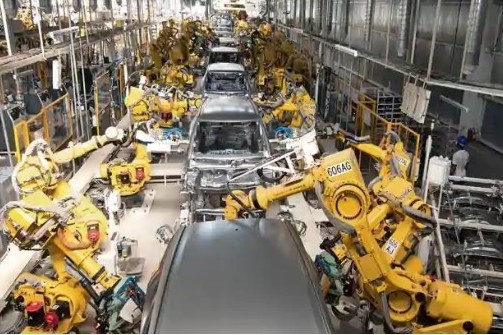New Delhi: Auto components industry body ACMA Wednesday said the sector will see a double-digit decline in growth this fiscal, after witnessing 34 per cent fall in the first half of the year due to coronavirus-induced disruptions.
Automotive Component Manufacturers Association of India (ACMA) said it can take anywhere “between two to three years, depending on how steep the recovery is” for the component makers to work out a whole sector Capex planning.
In the first half of the fiscal, ACMA said the turnover of the automotive components industry stood at Rs 1.19 lakh crore (USD 15.9 billion), registering a de-growth of 34 per cent as compared to Rs 1.82 lakh crore (USD 26.2 billion) in the first half of the previous fiscal.
The performance was mainly affected by the first quarter performance when the auto sector had almost “zero revenue” due to the nationwide lockdown, with restrictions continuing in the second quarter as well.
“Going forward, obviously this year as well, because of the lockdown and the challenges we continue to face, we will have a double-digit contraction. As you know 34 per cent, we have already contracted in the industry in H1.
“Although we are optimistic about our H2 performance, we will not be able to completely recover from the Q1 and Q2 fiascos,” ACMA President Deepak Jain told reporters in a video conference.
The auto components sector has been set back by three to four years due to the pandemic and it could take two to three years for the sector to reach the peak levels of 2018-19.
Jain, however, said the performance of the industry during the festive season has been heartening and there are indications that the vehicle demand, in the coming months will be sustained.
“This, together with the increased focus of the auto industry on deep-localisation and the recent announcement of PLI schemes for the automotive sector and cell/battery manufacturing by the government, augur well towards making the auto-component industry a self-reliant one,” he added.
When asked about how investments in the sector would be affected by the pandemic, Jain said, “In terms of capacity, ACMA’s view is that we probably would need a next year capacity planning”.
The components industry had done a peak of about USD 57 billion in 2018-19, he said, adding “we are no way close to that. I think there will be incremental capacity, which some component makers are already going out to do that would be based on what sectors they supply to”.
Jain further said, “But the whole sector is doing a Capex planning, and it will only come once we start growing to those escalating levels and that probably can take anywhere between two to three years, depending on how steep the recovery is”.
According to ACMA, exports of auto components declined by 23.6 per cent to Rs 39,003 crore (USD 5.2 billion) in H1 2020-21 from Rs 51,028 crore (USD 7.4 billion) in H1 2019-20.
Europe accounted for 31 per cent of exports, but saw a decline of 28 per cent, while North America and Asia – constituting 30 per cent and 29 per cent, respectively – also registered a fall of 28 per cent and 30 per cent, it added.
Imports of auto components decreased by 32.7 per cent to Rs 37,710 crore (USD 5 billion) in H1 2020-21 from Rs 56,066 crore (USD 8.2 billion) in H1 2019-20. Imports from all geographies witnessed a steep decline, but Jain said this was mainly on account of decline in auto sales in the domestic market.
In the first half of the fiscal, ACMA said the aftermarket segment witnessed de-growth of 15 per cent to Rs 31,116 crore (USD 4.1 billion) from Rs 36,607 crore (USD 5.3 billion) in H1 2019-20.
Commenting on the challenges, Jain said at present increasing commodity prices and raw material availability, especially those of semiconductors, are proving to be major hurdles due to a V-shaped recovery in the auto sector.
As far as semiconductors are concerned, he said due to a spike in global demand from the consumer electronics industry, there is a supply constraint, which the auto sector is facing at present.
However, it is difficult to quantify how much of an impact it will have, Jain said, adding ACMA is working with its members on how to overcome the challenge.
PTI
